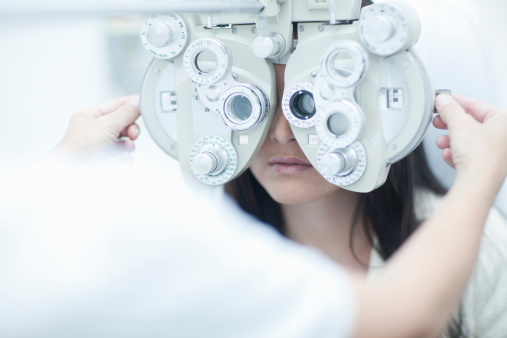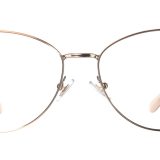America’s Best: How Different Weather Can Affect Your Vision

As the weather turns colder, we pull out the heavy coats, hats and gloves to protect our skin from the bite of winter. But what about our eyes? It seems we rarely think about the ways that the changes of season, and accordingly, the weather impact our vision.
Winter, Summer, Spring or Fall—our eyes must be able to handle it all. Here are some ways that different weather can affect your vision.
Winter
As the weather turns colder, most of us can observe the drying affect on our skin. But did you know that your eyes can experience the same winter dryness? On days when the weather is bitterly cold, your vision can be distorted due to this dryness or even accompanying redness. Keep moisturizing eye drops on hand, and drink plenty of water to try to fend off dry eyes.
Surprisingly, winter can also be a time when your eyes are at risk for damage from UV rays. In some cases, bright sunshine on a winter day can even cause light sensitivity. Wear sunglasses with UV protective lenses to help guard your eyes against these rays and also fend off light sensitivity that can happen when the sunshine reflects off surrounding snow or ice. Sunglasses can also protect your eyes from that harsh winter wind which may cause more dryness, especially those with polarized lenses.
Spring
As the weather warms, many find themselves spending more time outdoors. When flowers and trees bloom this can wreak havoc on our eyes. Allergy-ridden eyes have symptoms including itching, puffiness, swelling, or eye discharge which can all be caused by pollen floating through the air. When your eyes react, it may impair your vision or make it nearly impossible to wear your contact lenses.
The best way to keep your eyes healthy during high pollen seasons is to keep your face and hair clean. Wash both before bed each night so that those allergens don’t plague your eyes while you sleep.
Summer
If you’re out in the hot sun all day, dehydration can cause summer dry eye in a flash. Getting lots of fluids is key to keeping your eyes moist and happy in hot weather.
Scorching rays, combined with the abundance of outdoor summer activities, make a dangerous situation for your eye health unless you’re wearing UV protective sunglasses. Cataracts, and other eye diseases can be a result of not protecting those eyes during prolonged sun exposure. Keep those sunglasses on the whole time you are outside—even when you’re in the water.
Check out some of our best summer sunglasses in our online catalog:
Fall
For some, seasonal allergies peak again each Fall. Red, watering, or itchy eyes can make it harder to see clearly. As the days get shorter, and darkness sets in earlier in the evening, some start to notice difficulties with night vision. Talk to your optometrist if your dry eyes are impacting your vision or if you start seeing glare or halos while driving at night.
Want to find out more about how to keep your eyes healthy in every season? Schedule an exam to talk to your America’s Best optometrist.











